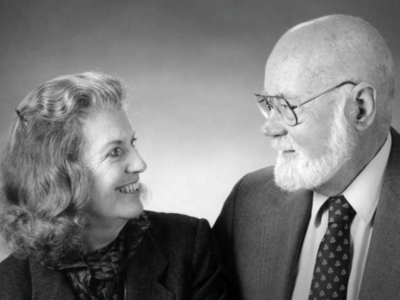In the 1970s, when E. Donnall Thomas was researching bone marrow transplantation, Fred Hutchinson Cancer Center started a database of transplant recipients.
In an oral history conducted by FDA in September 2013, Andrew C. von Eschenbach recounted his eight-month stint in a dual role as both FDA acting commissioner and NCI director. xxx:more
In 1991, the National Breast Cancer Coalition demanded that the federal government spend $300 million more on breast cancer research. This push resulted in the creation of the Department of Defense Congressionally Directed Medical Research Program, which has broadened to 34 other diseases with an FY24 budget of $1.5 billion.
When Helene Brown, a cancer control pioneer who jokingly described herself as “the first in a long line of political oncologists,” delivered the keynote address at the Oncology Nursing Society annual meeting in 1990, she set forth bold predictions for the ensuing 20 years of the field: appointments conducted over “computerphone,” major genetic breakthroughs, and universal healthcare.
This year, Fred Hutch Cancer Center celebrates its 50th anniversary. Fred Hutch will be marking this milestone with a series of historical articles, a timeline, photo archives, and more as the year progresses.
In 1984, Peter Greenwald brought a concern about food labeling to FDA. He felt that the “standards of identity”—the standards a food product must meet in order to be marketed under a certain name—went against the best available public health evidence.
When Marsha B. Henderson, former FDA Associate Commissioner of Women’s Health (1998-2019), sat down for an oral history interview upon her retirement from the agency, she could not have foreseen becoming party to a government digital purge 7 years later. Over the past week, the Trump administration has been busy at work deleting government webpages […]
“The historic National Cancer Act of 1971 has often been called ‘Nixon’s War on Cancer,’ but it could as easily have been called ‘Kennedy’s War on Cancer,’ and with perhaps greater justification,” writes Richard Rettig, a historian of the National Cancer Act (The Cancer Letter, May 23, 2008).
On May 18, 2024, Felix Feng, a leader in genitourinary cancer research, gave the keynote address at the inaugural symposium that bears his name.
In a new article on the Cancer History Project, the American Cancer Society profiles three ACS-funded Nobel laureates: They join a cohort of 50 other ACS-funded Nobel laureates. “The American Cancer Society’s legacy, with 53 Nobel Prize-winning researchers, is a testament to the relentless pursuit of breakthroughs that save lives,” said William Dahut, chief scientific […]















